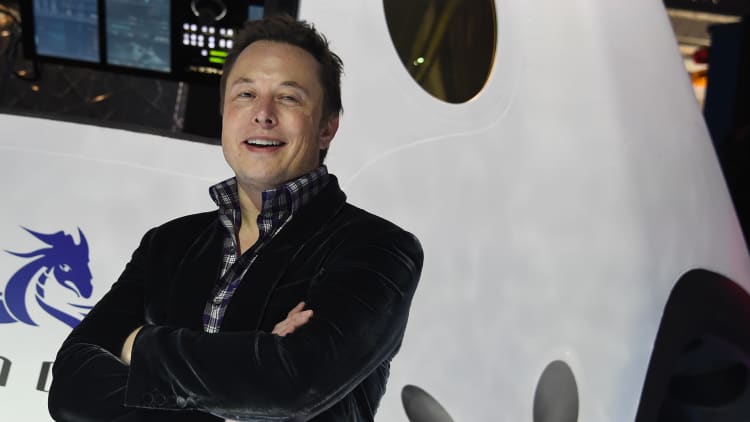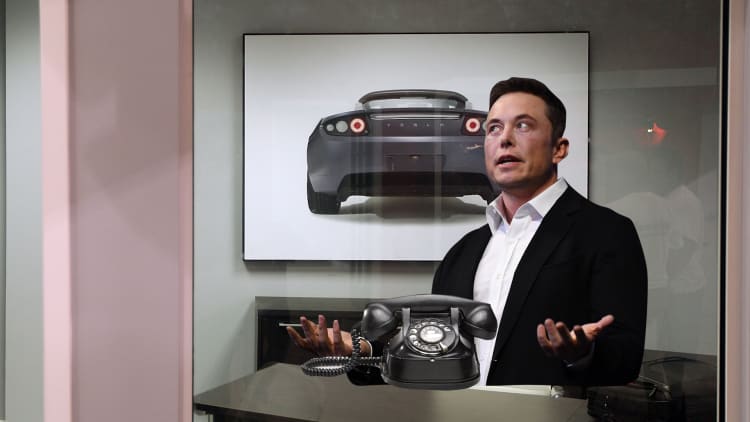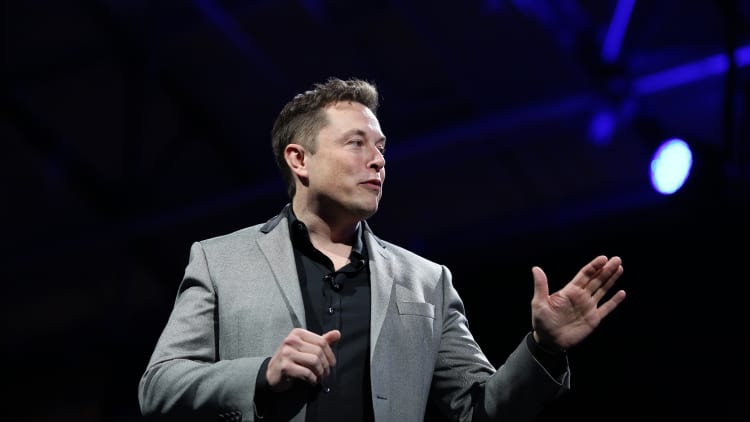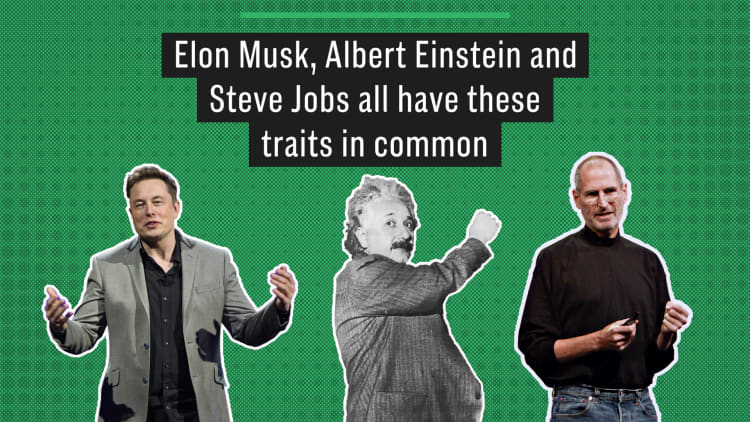There is no question that Elon Musk has a lot on his plate as the head of Tesla, SpaceX, Neuralink and The Boring Company.
Yet his ability to be transparent, funny and personally engaged, especially on social media, while moving his teams forward is exactly what makes him an exceptional leader, says former Google and Apple executive Kim Scott.
Elon Musk is "refreshingly candid," Scott tells CNBC Make It. "He is not afraid to be himself, and he's not afraid to lead."
Scott, a sought-after Silicon Valley CEO coach and author of the New York Times bestselling book "Radical Candor," details three traits that make Musk an exceptional leader, as well as one weakness he may want to work on.
1. He's transparent about the "highs" and "lows"
Executives who are clear about where they stand can win over the trust of their employees and investors, Scott says.
"I think Elon Musk's candor is admirable," she says. "We live in a world where there is a great lack of candor. [There are] too many leaders who aren't leaders at all, who put their messages through a PR campaign to make sure people will like what they said. That's not leadership, that's followership."
Musk has been particularly vocal about Tesla since the company announced in April that it's behind on production. In an "unusual" and frank earnings call on Wednesday that got everyone talking, Musk showed he was unafraid to speak his mind.
"We have no interest in satisfying the desires of day traders. I couldn't care less," Musk said on the call. "Please sell our stock and don't buy it."
He's also back to pulling all-nighters at Tesla's factory to keep up with Model 3 production and admits it isn't easy.

"I definitely feel stress," Musk recently told "CBS This Morning" host Gayle King. "I'm sleeping on the factory floor, not because I think that's a fun place to sleep."
By acknowledging the burden that comes with supporting the company's end goal, Scott says Musk is leading by example.
"I'm a believer that being honest with problems and engaging directly is a great and powerful thing that more CEOs should do," Scott says.
2. He uses humor to get his points across
Using humor "can be a wonderful way to communicate with your employees but also with your investors," Scott says.
Recently, Musk pulled an April Fool's Day prank days ahead of Tesla's 2018 first-quarter results. He tweeted: "Despite intense efforts to raise money, including a last-ditch mass sale of Easter Eggs, we are sad to report that Tesla has gone completely and totally bankrupt. So bankrupt, you can't believe it."
While some argued bankruptcy shouldn't be a laughing matter for Musk, Scott says more CEOs should lighten up.
"The power of humor to help people see when they've made a mistake is a great tool of leadership and radical candor," Scott says.
"If it's so dangerous to make a mistake that we can't laugh about it, then people are not going to acknowledge their mistakes or fix them," Scott adds. "I think great leadership is about creating an organization that can learn, and I think humor is one of the great tools of learning."
3. He takes a hands-on approach
Musk's willingness to work on the front lines removes any sense of hierarchy or separation between him and his employees, says Scott. It shows his workers on the floor that he's one of them and teaches other managers to roll up their sleeves as well.
In Tesla's fourth-quarter investor call, for example, Musk said he put himself on the production line to try to "solve problems personally" wherever he could.
"I always move my desk to wherever — well, I don't really have a desk, actually. I move myself to wherever the biggest problem is in Tesla," Musk said. "I really believe that one should lead from the front lines, and that's why I'm here."

Musk also takes it upon himself to respond to specific customer-service related questions and complaints on Twitter.
"I think there is something ennobling about a CEO that's not above any kind of work," Scott says.
Musk's big weakness: not establishing a strong organizational structure
Having worked in Silicon Valley for the greater part of her career, Scott sees Musk facing an issue many tech companies face: a lack of great upper management.
This "doesn't mean he's going to be a terrible CEO," Scott says. But "things have been moving too quickly at Tesla."
While "organizational design or management are probably not Elon Musk's chief interests," Scott recommends that he start "thinking through who reports to whom and the processes for hiring and promoting in the company."
"I think if Elon Musk could only put a fraction of the creativity and energy that he puts into building great products into the thinking through of his organizational design, he would find that his job as CEO and building cars is a lot less hellish," Scott says.
Like this story? Like CNBC Make It on Facebook.
Don't miss:



